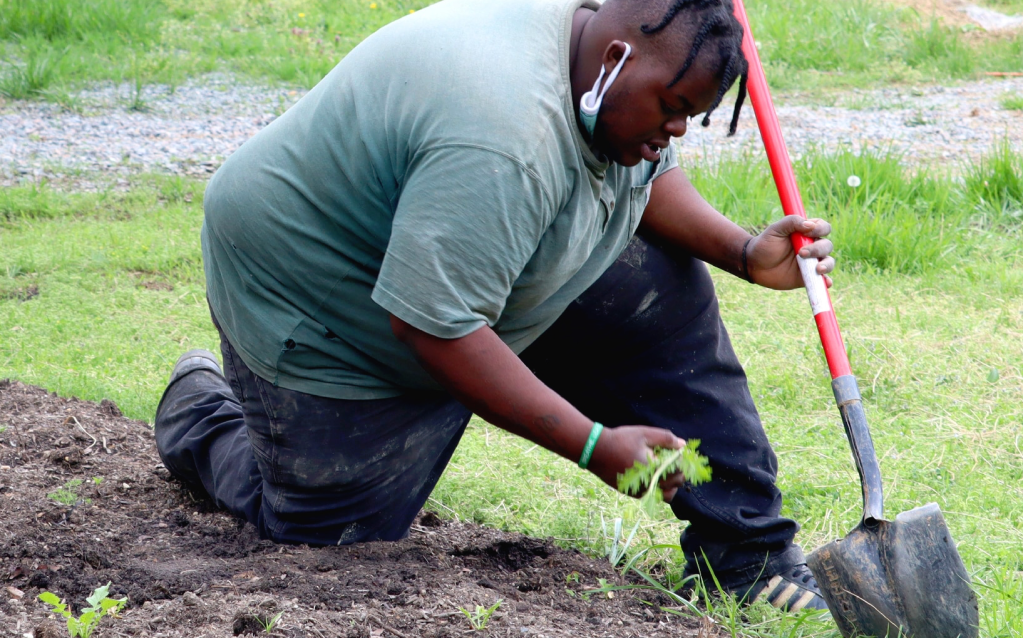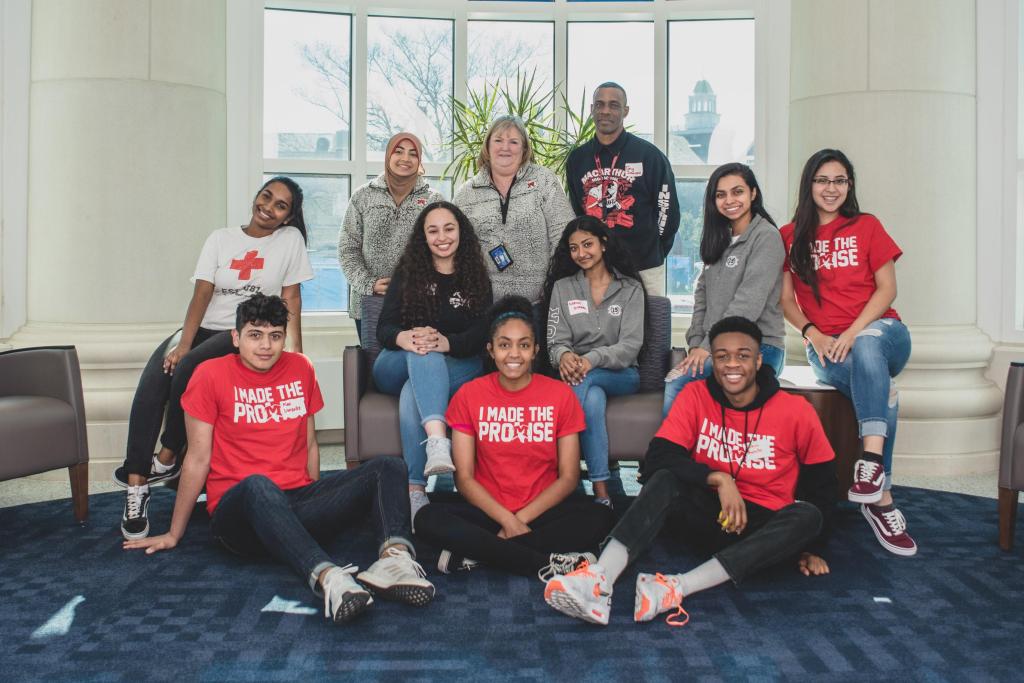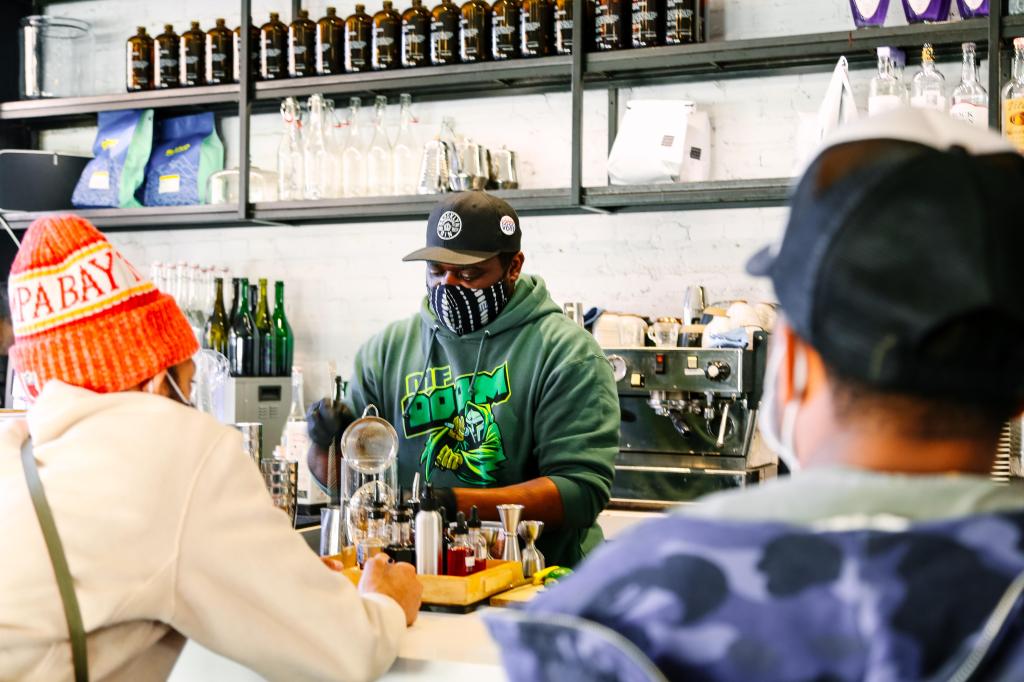Daniel Jones never had it easy. Before he was 18, he’d lost his mother and any chance at a stable home life. Then he had to change schools.
Jones, who was living with his older brother at the time, was reaching a breaking point. His brother had three children of his own and Jones knew that, family or not, his sibling couldn’t take care of him for long. He also knew he needed to get back into school as quickly as possible.
He had two choices: either go to school near where he lived, or fib on his paperwork and go to a school that would push him towards a better future. But there was another problem — the school that he wanted to attend was across town.
Even though Jones got in, he couldn’t apply for transportation privileges because that would reveal he was living out of district. That didn’t stop him.
Most days, he only had enough money to take a city bus across Richmond, Virginia, one way. After a full day at school, he walked seven miles back to his house where he’d have just enough time to do his homework and start preparing to do it all over again the next day.
[rebelmouse-image 19397679 dam=1 original_size=”700×394″ caption=”Photo by Austin Nicomedez/Unsplash” expand=1]
Despite all that, Jones has no regrets. “If I were to go to the other school, I wouldn’t be where I am today,” he says.
That walk home from school ended up leading him to a program that changed his life.
“I saw a little white, short bus, at the middle school which is right next door [to the high school],” Jones recalls. “One day I walked up to the bus and I asked them, ‘What is this?’ And they said, ‘it’s the Boys & Girls Club.’”
So Jones signed up for the Boys & Girls Club, but he wasn’t planning on joining any after-school activities. “That bus brought me within a mile of my house,” he says. “I started using the transportation.”
Despite his initial plan, he found himself getting involved in the Club, and eventually a counselor recommended Jones for an internship with Capital One’s Catapult program — a five-week training course for youth who have the potential but not yet the skills for professional careers. Catapult is an organization supported by Capital One’s Future Edge initiative — an effort focused on helping people succeed in a digital economy by advancing skills for the 21st century, small business development and financial well-being.
Catapult’s mission is to provide opportunity youth—young adults who are high school graduates ages 18 to 24—the chance to be great with the skills, experiences, and support that will empower them to reach their full potential through professional training, financial education, and workplace mentoring.
The goal is to equip participants with the skills and knowledge to move from minimum wage jobs to impactful careers with a focus on entry-level employment at Capital One.
Jones wasn’t sure how effective the program would be at first.
“The first thing that came into my mind was internships aren’t paid,” says Jones. “And then when they let me know that the internship was paid, I didn’t think about a career, I didn’t think about development, nothing like that, I just thought, hey, I can make money doing this.”
As someone who’s had to fight for survival from a young age, Jones didn’t have the luxury of thinking about his financial future. All he could think about was right now. And right now he wouldn’t mind spending five weeks learning about financial well-being in order to collect a paycheck.
So, the day after he turned 18, Jones joined the Catapult program. It’s a decision that he says has made him a better man, and not just in terms of business savvy.
Through the Catapult program, Jones connected with the program’s facilitator, Jonathan Bennett, training associate at Capital One, who he says made it clear that if Jones was going to build a strong future, he was going to have to start thinking about the long term. Suddenly, Jones started to see all of the possibilities open to him for the first time.
“My mind changed from trying to get a check to thinking, hey, this could be a career that I could do for the next 10, 20 years of my life,” recalls Jones. “It could give me the money to start my own businesses, do the things I wanted to do, and change peoples’ lives.”
For Jones, learning to take control of his finances felt like a whole new world. “People who come from my background, they say, ‘make enough to survive.’ We don’t ever hear, ‘you need to make enough to make investments, you need to make enough to be able to build your own business from the ground up.’ That kind of knowledge is a blessing.”
At the end of his training, Jones was offered a job at Capital One, where he’s currently a Senior Fraud Coordinator.
What’s more, he joined Knolls Community Corps Council, which centers around volunteering in the community — something he’d never thought he’d do before. Jones, who knows the pain of losing a parent, is working with a local foster group to plan an event for the kids.
He’s also looking forward to something much more long term. Since joining Catapult, Jones has learned to drive, gotten his license and bought a car. Now he plans to go to college, earn a degree in Health Administration and get an MBA. His goal is to launch a business that makes hospital food better. It was inspired by his mom and grandma’s comments about hospital food when they were hospitalized before passing away.
Now Jones is taking what he’s learned and giving back to the people around him, starting with his friends and neighbors.
He helps his neighbors with financial advice, gives them tips on how to interview, and even spruces up resumes. Most of the people he’s helped have gotten the job they wanted. He’s making sure that those he cares about know that they, too, can focus their future on “more than just tomorrow.”
Being part of the program has also changed the way Jones looks at the world. “I wasn’t very optimistic,” notes Jones. “Jon Bennett helped me mold into a smart business planner, and a good agent, but, more importantly, he made me a better man altogether.”
Financial capital is important, Jones says, but social capital is priceless.
Catapult also helped Jones build a sense of community, so when he’s giving back, he’s not doing it alone.
One of Jones’ friends is Kyle Jacobs, a 22-year-old who started a non-profit for underserved youth after joining Catapult. Before the program, Jacobs was living in an abandoned house without running water. He’d left college and, due to a large amount of debt, was unable to pursue his goal of joining the police academy.
Jacobs didn’t even know that he owed as much money as he did. Financial well-being had just never been part of his education.
During training at Catapult, Jacobs learned how to create a budget and manage a credit card.
“A lot of the problems I was having my whole life were based around money,” says Jacobs. “The Catapult program not only taught me all of the important things like credit, but it also taught me how to manage my money when I started making money.”
Joining Catapult, Jacobs says, helped him avoid a dangerous path. It helped him build a social network. He views the people with the Catapult program as family. And now that he’s working at Capital One as a Senior Fraud Intake Representative in Richmond, Jacobs wants to help others achieve the same things he has. He’s already started working on creating his own non-profit.
“It’s me finding kids that were in my same situation and teaching them the basic life skills that they aren’t gonna learn from their parents,” says Jacobs. “Because a lot of them aren’t necessarily concerned about graduating and getting a job. They’re more concerned about surviving.”
Jacobs is working with six children right now and, like Jones, is passing the skills that he’s learned in the program to the youth he mentors.
“I really want to broaden their perspective on things,” he says. “I’m taking them to financial well-being classes at the Capital One café in Richmond’s Carytown neighborhood. Teaching them how to network. I’m helping them build their small businesses.”
Both men want to use what they’ve learned in the program to transform the community around them — to show that a different future isn’t just a dream; it’s within grasp with the right tools and guidance.
“People tend to say, “Hey, I can change the world,” says Jones. “That’s really broad. People from my community think they can’t change their own world, let alone someone else’s.
“I want to instill that mindset of if you put your best foot forward, if you set your goals, if you put in the work, you can always achieve whatever goals you want to achieve in life,” he continues. “I want to help people develop in a way that they don’t just think about tomorrow, but they think about the next five years from now, next 10 years from now.”

































